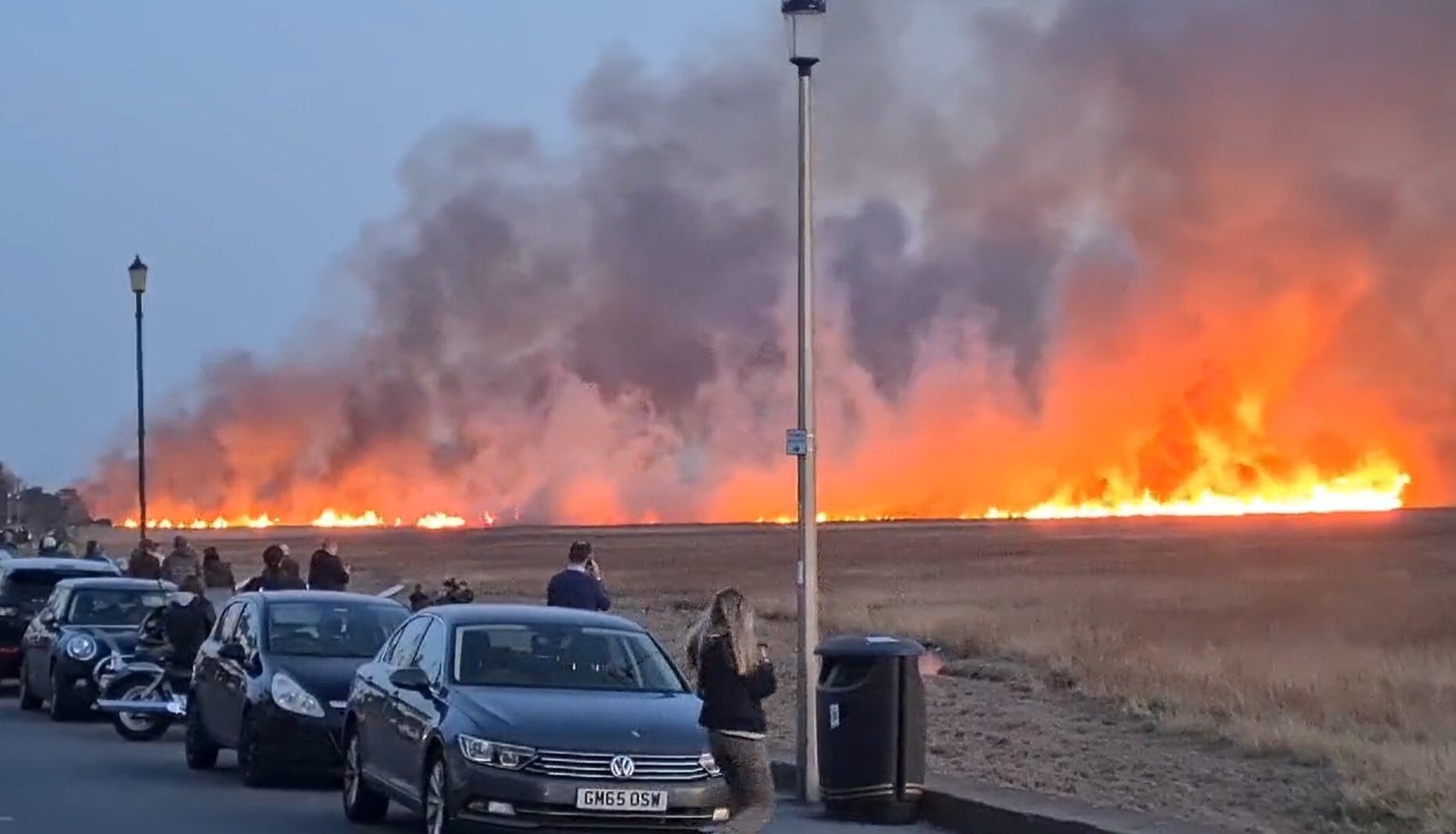Suspected deliberate fire on marshland ‘devastated’ nature reserve
Firefighters rushed to the scene at around 6.20pm on Saturday to find a square kilometre of marshes in flames.

Your support helps us to tell the story
From reproductive rights to climate change to Big Tech, The Independent is on the ground when the story is developing. Whether it's investigating the financials of Elon Musk's pro-Trump PAC or producing our latest documentary, 'The A Word', which shines a light on the American women fighting for reproductive rights, we know how important it is to parse out the facts from the messaging.
At such a critical moment in US history, we need reporters on the ground. Your donation allows us to keep sending journalists to speak to both sides of the story.
The Independent is trusted by Americans across the entire political spectrum. And unlike many other quality news outlets, we choose not to lock Americans out of our reporting and analysis with paywalls. We believe quality journalism should be available to everyone, paid for by those who can afford it.
Your support makes all the difference.A suspected deliberately started fire which raged on marshland “devastated” parts of a nature reserve, according to conservationists.
Firefighters rushed to the scene, which is a reserve managed by wildlife charity RSPB at Parkgate, near Neston, on the Wirral, at around 6.20pm on Saturday where a square kilometre of marshes were in flames.
The fire was eventually extinguished shortly before 7am on Sunday and police have been informed it is suspected it was started on purpose.
An RSPB spokesperson said: “We’re shocked and saddened by the fire that has devastated the Neston Reedbed part of our reserve yesterday evening.
“The reserve is home to a vast array of significant wildlife, including bearded tits, Cetti’s warblers and bittern. Marsh harriers were also beginning to build their nests on the marshland which has sadly been lost to fire.
“The full extent of the damage is currently being assessed, and we’ll share further details once more information emerges. We’d like to take this opportunity to thank the emergency services for all they’ve done so far in helping to tackle and investigate the fire.”
Six engines were deployed with firefighters initially battling two areas with beaters and hoses. Later in the evening, crews set up fire breaks to protect nearby properties after leaving the fire to burn due to unstable ground.
Crews used thermal imaging to determine the blaze had eventually been extinguished by the early morning, but did not leave the site until 10am, more than 15 hours after the fire initially broke out.
Station manager Carl Nevitt, the officer in charge of the incident, said: “The marshland is a site of special scientific interest.
“The fire covered over one square kilometre of the area and was being driven by wind.
“We created fire breaks to protect properties and the police air support unit was used to give us information on the directional spread of the blaze.
“We were at the scene for some fifteen hours, leaving just before 10am this morning having monitored the area overnight after the flames were extinguished.”